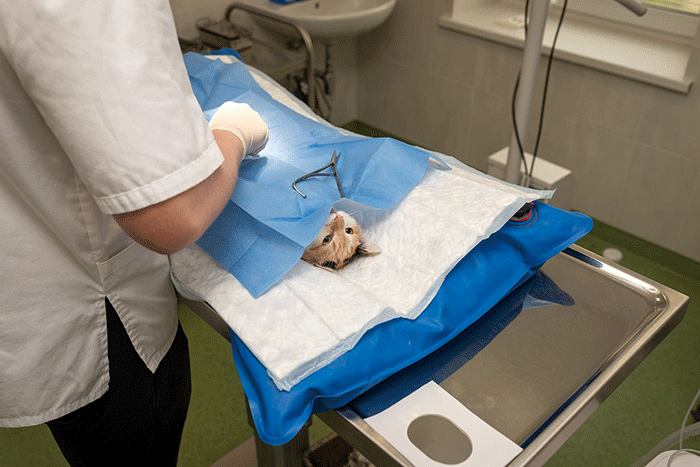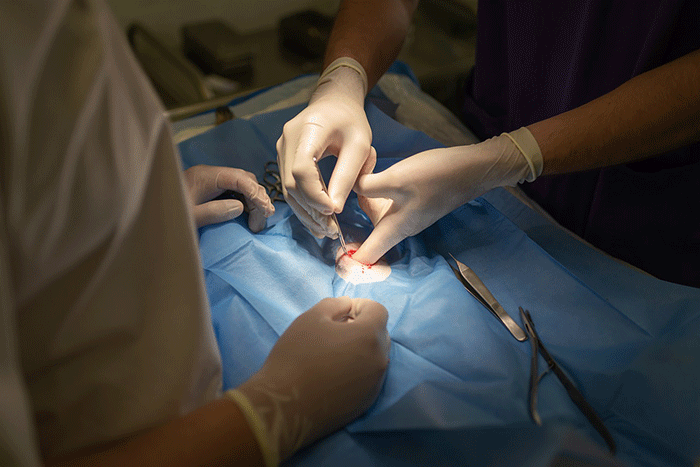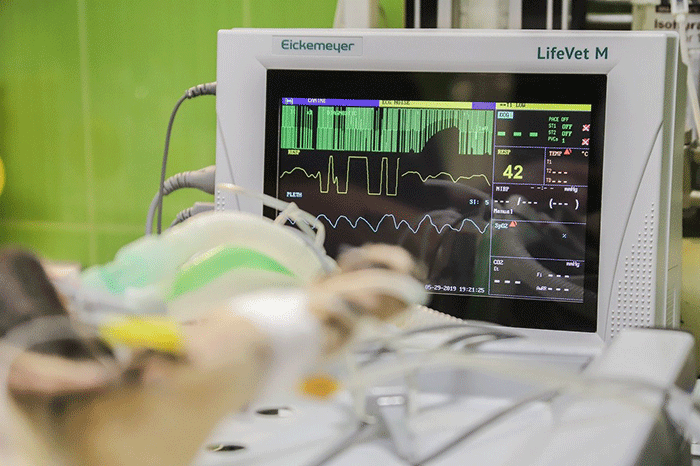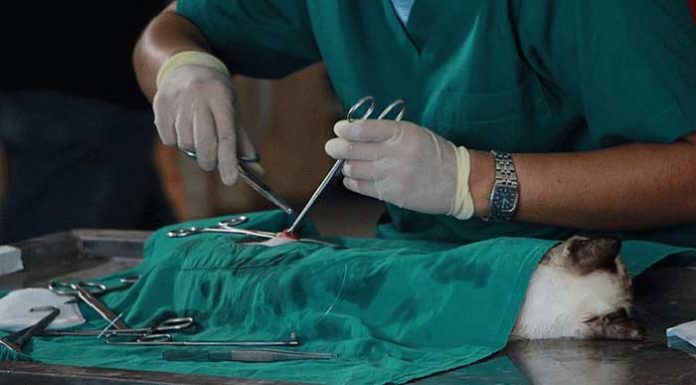Taking care of cats is hard work, especially if they belong to a rare and exotic breed. Some cats are more prone to health issues however, there are some illnesses that are common in all cat breeds. Kidney diseases is one of them. It can be very overwhelming for cat parents to know that their feline baby has kidney disorders. If you consider how renal failure is one of the most common causes of deaths in cats, it can lead to fear and anxiety attacks. However, Kidney Failure in cats is treatable and can save the life of your fur baby if given proper medical attention and everyday care. Cat parents should learn more about these illness so that they are better prepared to handle it. That’s why, this article gives you comprehensive information about kidney related problems in cats. So lets move ahead!
Important Functions of Kidneys in Cats
We all know Kidney is an important part of our anatomy. It serves a lot of essential functions. The main ones being filtering blood and producing urine. Kidneys are the organs that remove toxic waste from out bloodstream and purify the blood in our bodies. It is also responsible for balancing blood pressure, hormone production and regulation, in addition to stimulating bone marrow. If kidneys are not functioning properly all of these tasks are hindered, leading to major damage in the body. Cat kidneys work in the same way.
What are Kidney Disease in Cats?
Renal Disease in cats specifically refers to disorders of the kidney. When the kidney is unable to perform its operations, it is known as kidney failure or renal failure. Kidney failure in cats have two types as stated below:
Types of Feline Kidney Problems
1. Acute Renal Failure (ARF)
Acute Renal Failure is the less harmful of the two. If diagnosed at an earlier stage, a Vet can reverse it and your kitty would recover completely without any side-affects. It develops suddenly as a result of poison or shock from an accident. It can happen to cats of any age, be it a small kitten or a fully matured cat.
Causes of ARF in Cats
Acute Renal Failure in cats usually happens due to external reasons. Here are some of the most common causes of ARF in Feline animals.
Ingestion of Poisonous substances
Such as Insecticides, pesticides, rodenticides, etc. Antifreeze is a common cause of kidney disease in cats as people neglect to dispose it off properly. That’s why it is essential to invest in good house cleaning tips for the sake of your feline family members. Some plants are also toxic to cats, for example Lilies.
Poison from animal bites
Usually insect bites and snake bites are poisonous to cats and humans alike.
Ingestion of Human Medicines
Most human medications are harmful for animals, especially cats. Non-steroidal Anti-inflammatory Analgesics (NSAIAs) such as ibuprofen can damage organs in cats immediately.
Physical Trauma from Accidents
If a cat break his/her pelvis or has a burst bladder due to an accident.
Sudden Shock resulting in Rapid loss of Bodily Fluids
Rapid loss of blood, excessive dehydration, vomiting and diarrhea.
Infections
Internal infections or blockages in the bloodstream.
Heart Problems
Irregular blood flow or reduced flow of blood to the kidneys also results in renal failure in cats.
2. Chronic Kidney Disease (CKD)
Chronic Kidney Disease, as the name suggests, is a long-term illness and has no cure. It develops gradually. Humans usually cannot detect it without proper medical check up. Symptoms can be very mild and common which doesn’t alarm the cat owners. It’s a progressive illness that can take months or even years to fully develop. Middle aged cats usually get it more often.
Causes of CKD in Cats
Although, the exact cause of Chronic Kidney Disease in cats is not always clear. It seems to develop due to old age. Lets look at some of the causes.
Cancer:
Any tumor or cancer in cats also affects the kidneys.
Infections:
If an infection is not strong enough for Acute Renal Failure but persists over time, it results in CKD.
Dental Diseases:
Very advanced dental diseases are linked to CKD sometimes.
Hypertension:
High blood pressure or other heart related issues can contribute to chronic Kidney Disease in cats.
Top 10 Most Common Symptoms of Kidney (Renal) Failure in Cats
It is important to keep an eye on the health of your cats to detect kidney illnesses early on. If you notice any of the following symptoms in your cat, please contact your family vet immediately.

Excessive Urination
If your cat is urinating a lot, it’s a sure sign of a bladder Infection of renal problems. See if your cat pees outside of the litter box, urinates a lot or doesn’t urinate at all. Any irregularity in bladder movement signals kidney diseases.
Vomiting and Diarrhea
Since body cannot absorb liquids if kidneys are malfunctioning, it’s common for cats to experience vomiting and diarrhea.
Lethargy
If your cat is being lethargic, unusually low energy and sleeping a lot, consult your vet.
Drinking Water a Lot
Your cat is likely to drink a lot of water to compensate for the loss of fluids due to kidney Failure.
Abnormal Metabolism, Sudden Weight Loss
Renal failure in cats lead to sudden anorexia and weight loss. They experience reduced appetite and may not eat properly.
Bladder Infections
Bacterial infections of the bladder are especially harmful for kidneys.
Dental Problems
If you notice bad breath, mouth ulcers, swollen gums, a tongue that shows brownish color, it can be a symptom of kidney disease in Felines.
A Dry Coat
Cats suffering form CKD often show indifference, stop grooming their coat and become really weak. Their fur loses its shine and becomes dry.
Hypertension
High blood pressure is both the cause and symptom of cat kidney Failure.
Seizure
Some cats suffering from renal problems also experience seizures.
How do Vets Diagnose Kidney Disease in Felines?

Diagnosis of Kidney (renal) Failure in Cats consists of a number of tests. These include, a blood test and urine analysis to determine the concentration of toxins in the blood and urine. Vets will be looking for Blood Urea Nitrogen (BUN) and Creatinine, which is a sure sign of kidney Failure. It specifically indicates that the cat is suffering from CKD. X-rays and ultrasounds are also done traditionally. Biopsy, that is tissue sampling, is uncommon but can be done in certain cases to assist in diagnosis.
What Does the Treatment for Cat Kidney Diseases Look Like?

Generally, treatment for Kidney Diseases in cats is diverse and depends on the cause of the problem. For example, if a blockage in bloodstream is causing it, a surgery helps remove it. Medication and IV Fluids also treat both CKD and ARF. Furthermore, patients get a specialized diet. It consists of low intake of phosphorus, protein and sodium while being high in water-soluble vitamins like vitamin D, omega-3 fatty acids and fibers.
Treatment for Acute Renal Failure in Cats
For ARF, the focus of the treatment is removing the immediate cause of the problem, that is the toxins, poison, etc. Addressing wounds and preventing further blood loss is also essential. Intravenous Fluids will be administered to your kitty for at least 3 to 4 days to replenish body fluids. If cause of AFR is ingestion of human medicine, then the vet will empty the stomach of your cat before using activated charcoal to prevent more toxins from being absorbed into the body.
Treatment of Chronic Kidney Disease in Cats
Since there is no cure for CKD, the treatment centers around removing the toxic substances from the cat’s body while also working to minimize buildup. It mainly focuses on improving the life of the cat and prolonging it using various methods. There’s include, keeping a check on the amount of toxins, a healthy, nutritious diet, maintaining hydration in the body and regulating blood pressure.
What are the chances of Recovery?
If treated in a timely manner, ARF can be cured completely and your cat can recover in a few months. CKD, on the other hand, cannot be recovered from completely. However, treatment will add on average 2.1 years to your cat’s life. According to a study, the cat can live up to anywhere between 1.86 years to 5.75 years, after being diagnosed with CKD. This depends on the stage of the disease.
Catch the Signs early on and Prevent Kidney Failure in Your Cat
Here are some ways you can prevent kidney (renal) Failure in cats:
Regular Visits to the Vet
Regular check ups are great for detecting anything that is wrong with your fur baby. Never skip your vet appointment as lab tests can help catch kidney disorders early on even if they’re not showing visible signs yet.
Maintaining a Healthy Weight
Do not let your cat become overweight or obese as it leads to a number of health issues. Ensure a balanced diet and easy exercises to maintain a healthy weight.
Encouraging Hydration
It is very important for cats to stay hydrated for optimal kidney function. Encourage them to drink more water by buying the best water fountain for your kitty.
Keep the Litter Box Clean
A lot of bladder infections result due to a lack of litter hygiene. Make sure to keep the litter box clean to avoid infections.
Conclusion:
A number of reasons can cause Kidney (renal) failure in cats. While it is impossible to eliminate all of them, it is still a good idea to make efforts to reduce their probability. Once your cat gets diagnosed with Kidney issues, all you can do is focus on the treatment and ensuring a good lifestyle for your feline baby.
Read Also: Top 10 Most Exotic and Expensive Cat Breeds in the World





